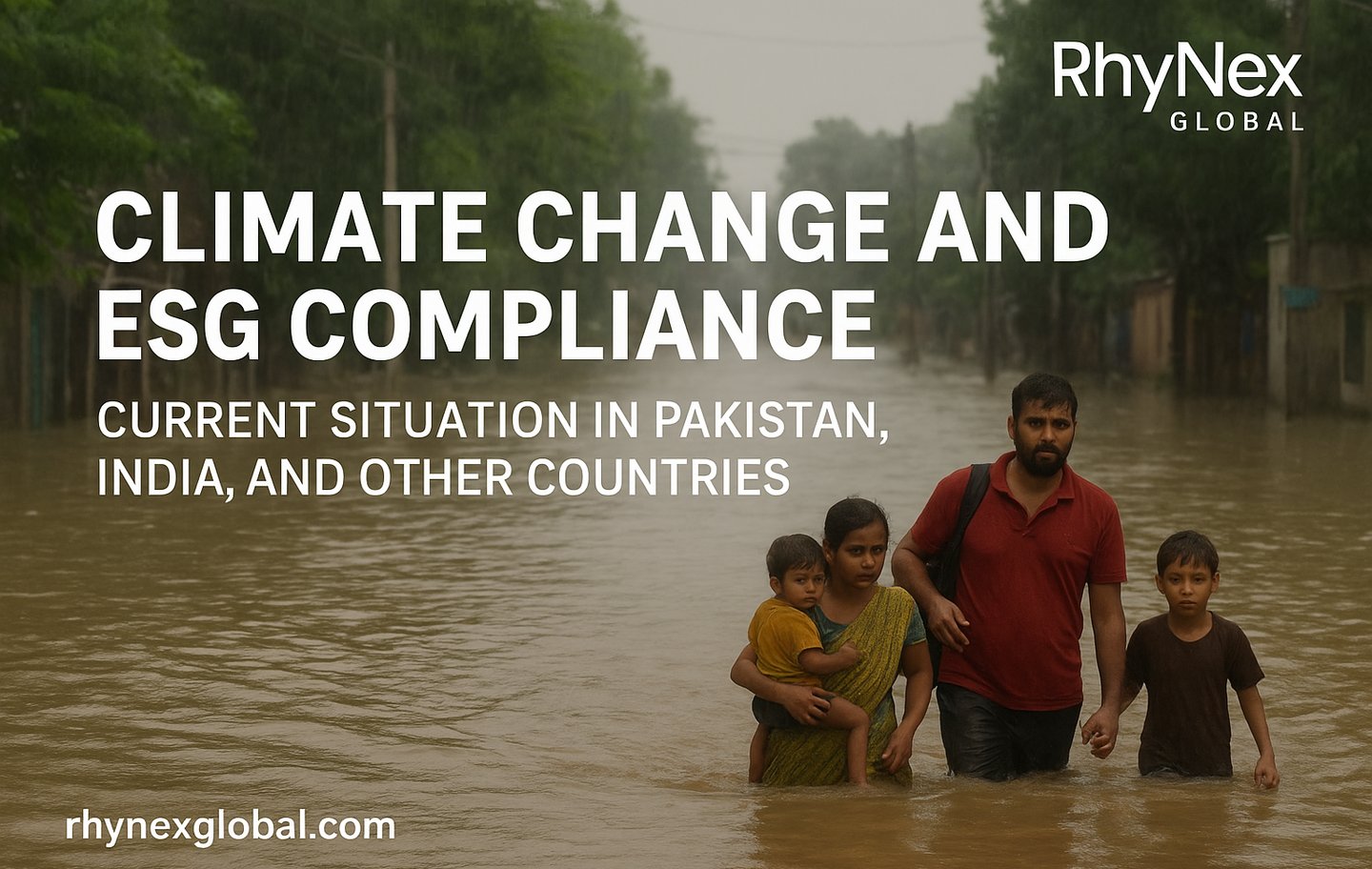
Climate Risks and Business Strategy: Why ESG Matters Now More Than Ever
At RhyNex Global, we believe that addressing climate change and ensuring ESG (Environmental, Social, and Governance) compliance are no longer optional initiatives, but necessities for businesses that wish to thrive sustainably in an interconnected world.
Bilal Yaqub Rana
8/21/20252 min read



Climate Change and ESG Compliance: A Global and Regional Perspective
At RhyNex Global, we believe that addressing climate change and ensuring ESG (Environmental, Social, and Governance) compliance are no longer optional initiatives, but necessities for businesses that wish to thrive sustainably in an interconnected world.
The Growing Challenge of Climate Change
Climate change is increasingly manifesting itself through severe weather patterns, rising global temperatures, and environmental degradation. In South Asia, the impacts are particularly alarming. Pakistan, for instance, has experienced unprecedented floods in recent years, displacing millions and causing immense economic losses. Neighboring India has also suffered devastating floods and heatwaves that threaten agriculture, infrastructure, and livelihoods. These regional challenges highlight how climate risks are not just environmental issues but also economic and social crises.
Beyond South Asia, countries like Germany and Belgium have witnessed catastrophic floods, while Australia continues to struggle with record-breaking bushfires. The United States faces hurricanes and wildfires with increasing frequency, underscoring the global nature of this crisis.
The Role of ESG Compliance
Amid these growing risks, ESG compliance has emerged as a vital framework for businesses and governments alike. ESG is not merely about environmental sustainability; it also encompasses social responsibility and governance integrity. Companies that integrate ESG principles into their strategies are better positioned to manage risks, attract investment, and create long-term value.
For example, many multinational corporations are now demanding ESG-aligned supply chains. Investors are channeling funds toward businesses that demonstrate sustainable practices, while regulators in regions like the European Union are tightening disclosure requirements on climate-related risks.
The Current Situation in South Asia and Beyond
In Pakistan, the urgent need for ESG compliance is evident. Floods have devastated communities, highlighting the importance of sustainable infrastructure and responsible resource management. India’s recurring floods and heatwaves emphasize the need for climate-resilient agriculture and water conservation. Similarly, Bangladesh faces rising sea levels that threaten millions of people, making ESG-oriented strategies crucial for survival.
Globally, nations are aligning with the Paris Agreement, pushing for net-zero targets and cleaner energy transitions. Countries like China and Japan are investing heavily in renewable energy, while Scandinavian nations lead the world in integrating ESG compliance into corporate and national policies.
Why ESG Matters for Businesses
For businesses, ESG is no longer just about compliance but about competitive advantage. Companies that embed ESG into their core operations can:
Enhance resilience against climate-related risks.
Build stronger relationships with stakeholders.
Attract global investors who prioritize sustainable practices.
Contribute to global climate goals while ensuring long-term profitability.
Conclusion
The escalating impact of climate change, from the floods in Pakistan and India to the fires in Australia and hurricanes in the US, underscores the urgency of action. ESG compliance provides a roadmap for businesses and societies to transition toward sustainability, resilience, and inclusive growth. At RhyNex Global, we are committed to guiding organizations through this transformation, helping them build strategies that not only comply with global ESG standards but also create a lasting positive impact.
Together, through ESG compliance, we can confront climate challenges, safeguard our communities, and shape a sustainable future.
